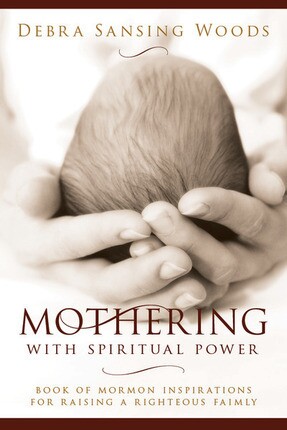As a mother of five children, ages 13 to 25, I am in the thick of parenthood and deeply appreciate the ongoing counsel that we receive from Church leaders about raising families. At the same time, I have often wondered about the Church experience of those without children, whether married or single. I recently set out to better understand the experiences of Church members who do not have children of their own. Through heart-to-heart conversations with many such members, I came to understand on a whole new level that each childless individual or couple has their own unique situation and story. During my discussions with childless members, I asked how members of their wards or branches can better support them. Here are the suggestions that came up most often.
Think before you speak.
Almost without exception, those I spoke with do not believe that other members are intentionally hurtful. Rather, they feel the hurtful things people say are a result of not thinking about or understanding their situation.
For example, Whitney related a time when a Relief Society presidency member stood up to announce her pregnancy, enthusiastically exclaiming that she would now know what it felt like to be a “real woman.” Whitney fled into the hall where she broke down and sobbed. She knew the hurt was unintentional, but the sting in the midst of her years of infertility was almost more than she could bear in that moment.
Alison shared a different experience when she attended a weeknight Relief Society activity, where she was matched with a group of young mothers so they could socialize while working on various craft projects. Alison was excited to talk to these sisters but ended up feeling terribly left out when they spent the next 90 minutes talking exclusively about being moms and raising children.
The individuals and couples I spoke with want to celebrate the pregnancies and families of others, but at the same time, it would mean so much to them if, in our conversations, church talks, lessons, and activities, we would keep in mind that not all Church members are married and have children.
Kara, a married sister, had this to say: “My biggest advice is to just be aware of others when you are sitting around visiting with the women in your ward.” A little awareness and sensitivity in our interactions with others can make a tremendous difference in our church family, allowing all to feel included.
Please don’t pry.
Those I interviewed said that it’s hard to have other members question them about their circumstances. One single sister says that she is often asked, “Don’t you want to have kids?” suggesting perhaps that she has chosen her successful business career over marrying and having children, which wasn’t the case. My overall impression from talking to LDS members without children is that if they want us to know why they don’t have children, they will share with us.
One sister sums up the sentiment of many, “The best thing is when members . . . don’t comment on the fact that I don’t have kids.” Another childless sister says, “If we bring it up and talk to you, listen. But don’t pry!” In other words, let us be careful not to judge others based on whether or not they have children and remind ourselves that we don’t know what is going on in every person’s mind or heart.
Forget the pity party.
In a church where the ideal is to marry and raise a family, those with children may easily succumb to feeling sorry for those who do not have that opportunity, but that’s not what childless members want. “Don’t throw us a pity party. We have plenty of our own,” say Teresa and her husband Henry, adding, “You could say, ‘That’s so hard’ or maybe even ‘Do you need anything?’ but then please drop it. We know you are sorry—and so are we. We both know you can’t really help, but the offer is often still nice to hear.” One single sister sums it up well: “I don’t need pity, really. I just need love, like everyone else.”
Avoid making assumptions.
Eli and Erica, a couple in their 30s, find that many members assume they have chosen not to have children or are living in misery. The truth is that they would love to have children of their own. But despite their childless state, they have created an enormously satisfying life together doing things they couldn’t otherwise do, such as “bringing a struggling friend into [their] home and ministering unto him without worrying about how it will affect the children.”
Suzanne, a successful, single attorney, finds that people often assume one of two things about her: (1) that she is all about her career and feminism or (2) that she is depressed and unfulfilled. Yet, neither of those is true. “In my case, I would give up my career in an instant to have children,” she says, adding, “but I am still happy overall. Some days I am sad and wish that I had people to come home to. Other days I am extremely thankful that I can sleep through the night and go on a vacation on a whim and come home and have a Harry Potter marathon if I want. Basically, I am just like everyone else: I have good days and bad days, but I have a great life. I am not just sitting around wishing for what I don’t have.”
Refrain from comparing situations or repeating platitudes.
One married sister says about people’s attempts to comfort, “Please don’t tell us about how you understand us because you know someone else going through a similar thing. No two situations are the same.”
A number of members without children say other members often try to comfort them by saying that “their time will come.” One such sister says, “Maybe my time will come in this life, or maybe it won’t. Basically, my time is now, just like everyone else’s! I am living my time. Unfortunately, it is not yet my time to be a wife or a mother. But my life is no less important or fulfilling because it isn’t ‘my time’ yet.”
In regard to giving advice, one married couple says, “If we need your advice, we will ask directly.”
Please value us and socialize with us.
Those I spoke with want to be treated like everyone else. One single sister shared, “I love it when couples invite me over to socialize and don’t treat me like I’m a charity case because I am childless.”
It is human nature to flock together with those in similar circumstances, but if we focus on too narrow a social circle, we miss out on developing deep and eternal friendships with some amazing brothers and sisters. Brainstorm a list of individuals and couples you might invite over for dinner. Consider starting a book club, reaching out to every sister who might like to participate. Invite that single brother or sister over for family home evening to play games or share a talent. As you seek to make genuine connections with every member of your ward, including the childless, you will be blessed by their talents, testimonies, perspectives, and enthusiasm.
Do not express envy, even in an attempt to lighten the mood.
Following a hysterectomy that left her unable to bear children, Carly opened up to share her heartache with a sister she greatly admired. Before she could finish, however, the sister interrupted, “You are so lucky. I wish I could trade places with you.” Stunned by this comment from a mother of a large family, Carly immediately stopped talking. “I felt slapped in the face,” she says, “though I know she did not mean to be so rude and hurtful.”
Other members without children related their own uncomfortable and sometimes painful experiences of fellow members expressing envy over their childless circumstances, whether over how easy it must be for them to sleep in or how nice it might be to not have anyone depending on them. One childless sister pleads, “Please do not whine about what you have that we do not and long for.”
Instead of expressing envy, find ways to sympathize. Ask them what they’re feeling and just listen to them.
Let us interact with your kids, but don’t assume we want to take care of other people’s children all the time.
“Don’t be creeped out if I talk to or play with your kids,” one single member says.
Some of my children’s best mentors in the ward have been members without children. I feel a deep sense of gratitude to these individuals for blessing my children’s lives with their talents, skills, and inspiration. Many I spoke with expressed appreciation for opportunities to interact with children in their wards. One sister loved being invited by the bishop’s wife to sit with her and her children during sacrament meetings. She came to love the kids and felt far less lonely when in their company. With all of that said, let’s also be sensitive to asking childless members to babysit too often or offering to “loan” them our children just so we can have a break.
Follow the Spirit.
Each Church member’s circumstance is different, but if we sincerely pray for and seek out opportunities to build friendships, gain understanding, and give support, we can bless the lives of childless members just as they can enrich and bless ours.
Debra Sansing Woods is the author of Mothering with Spiritual Power: Book of Mormon Inspirations for Raising a Righteous Family. Purchase a copy of her book today at Deseret Book or online at deseretbook.com. You can also visit her website at debrawoods.com.
For more stories like this, check out the May/June 2016 issue of LDS Living Magazine, available now at Deseret Book or online at deseretbook.com.



